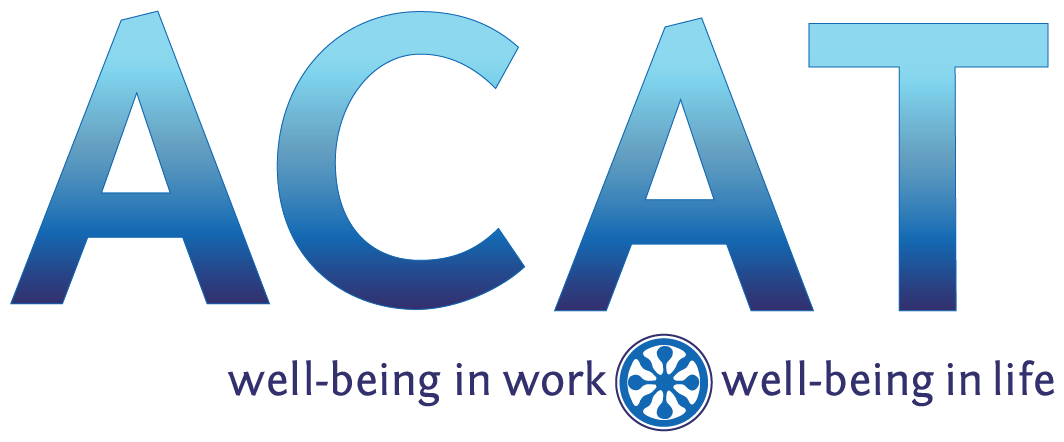ACAT was fortunate to host Drs. Tim Cacciatore (Ph.D. in NeuroScience, teaching via Skype) and Patrick Johnson (Ph.D. in Physics, presenting at ACAT) for their information packed workshop "Contemporary Science and Good Use” in May of 2017.
Read moreCould the Alexander Technique Have Prevented The Great Recession?
 By Karen G. Krueger
By Karen G. Krueger
"If we understand how a person's body influences risk taking, we can learn how to better manage risk takers. We can also recognize that mistakes governments have made have contributed to massive risk taking."
These striking assertions are from a recent opinion piece in the New York Times (Sunday Week in Review, June 8, 2014) by John Coates, a research fellow at Cambridge and a former derivatives trader at Goldman Sachs and Deutsche Bank.
I was particularly pleased to see this mainstream media piece acknowledge the unity of mind and body:
"Many neuroscientists now believe our brain is designed primarily to plan and execute movement."
"We do not process information as a computer does, dispassionately; we react to it physically."
These statements, and the neuroscience that underpins them, confirm my own experiences in learning and teaching the Alexander Technique. A century ago, F.M. Alexander used observation, reasoning and experimentation to examine and change his own stress response, and then to teach others to do the same.
The stress response that prompted Alexander's inquiry was a form of performance anxiety: he was an actor plagued by chronic hoarseness when on stage. Coates is interested in the responses of traders and investors to financial uncertainty. Unlike Alexander, Coates does not deal (at least in this article) with the possibility that individuals could change how they react to stress. Rather, he recommends that financial regulators use an understanding of human beings' automatic physical responses to novelty and uncertainty to manipulate the behavior of other players in the financial system.
Coates emphasizes the hormonal changes of the stress response: adrenaline, cortisone testosterone and dopamine all make an appearance. He also describes the related changes in heart rate, breathing and blood pressure. Oddly, he doesn't mention the most obvious physical reaction to stress: tense muscles in the neck, shoulders and back. You don't need a functional MRI or a blood test to detect that reaction to stress!
Like all Alexander Technique teachers, I work with my students on noticing how their neuromuscular systems react to stimuli of all kinds, and using Alexander's simple process of thoughtful practice to change those reactions that interefere with efficient, healthy functioning of body and mind. My students usually begin with straightforward goals: they want to learn to sit, stand and move with better posture and less tension, so that their necks, backs or arms will stop hurting. In the process, they discover that learning to change their physical habits has broader beneficial effects, including a greater capacity to choose to remain calm and thoughtful in situations that previously provoked anxiety.
So I couldn't help wondering as I read Coates' piece what would happen if a critical mass of individual participants in the financial system were to take Alexander Technique lessons. Imagine whole trading desks of traders who were able, in the face of financial panic, to stop tensing their necks, calm down their breathing, and take time to think about how to respond. Could they avoid being swept up into the mass unreasoned reactions that Coates describes, and minimize the damage to their own health in the process?
If you are a day trader who would like to stop allowing your hormones to drive your decisions—or just an average stressed-out New Yorker who would like to feel more in control of your life—find out more about the Alexander Technique:
- Attend a free introduction at the American Center for the Alexander Technique.
- Try a lesson one-on-one with a certified Alexander Technique teacher.
[author] [author_image timthumb='on']http://www.acatnyc.org/main/wp-content/uploads/2014/06/Kreuger.jpg[/author_image] [author_info]KAREN G. KREUGER became a teacher of the Alexander Technique after 25 years of practicing law at two major New York law firms, receiving her teaching certificate from the American Center for the Alexander Technique in December 2010. Her students include lawyers, business executives, IT professionals and others interested in living with greater ease and skill. Find her at her website: http://kgk-llc.com. [/author_info] [/author]

